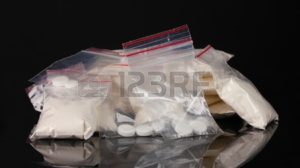 On January 8, 2019, the New Jersey Supreme Court decided the case of IMO the Expungement of the Arrest/Charge Records of T.B., J.N.-T. & R.C. The principal issue was whether Drug Court graduates seeking expungement under N.J.S. 2C:35-14(m) are entitled to a rebuttable presumption that their petitions are consistent with the “public interest.”
On January 8, 2019, the New Jersey Supreme Court decided the case of IMO the Expungement of the Arrest/Charge Records of T.B., J.N.-T. & R.C. The principal issue was whether Drug Court graduates seeking expungement under N.J.S. 2C:35-14(m) are entitled to a rebuttable presumption that their petitions are consistent with the “public interest.”
Writing for a unanimous Court, Chief Justice Rabner held in relevant part: In light of the rigorous monitoring that is the hallmark of drug court, as well as the new law’s overall policy in favor of expungement for successful graduates, we find that participants are entitled to a rebuttable presumption that expungement is consistent with the public interest. As an integral part of the drug court team, prosecutors may draw on their knowledge of an applicant’s character and conduct after conviction, as well as other information, to try to rebut the presumption. That approach dovetails with the obligation imposed on prosecutors “to notify the court of . . . factors related to public safety that should be considered by the court when deciding to grant an expungement.”
In Kollman, we directed applicants to provide copies of plea and sentencing transcripts, as well as presentence reports, to enable courts to evaluate the public-interest standard. Kollman addressed the general expungement statute. Only years later did the Legislature provide for expungement of a drug court graduate’s entire criminal record under a different law, id. § 35-14(m). For the same reasons that warrant a rebuttable presumption in those cases, we conclude that successful drug court graduates are not required to provide copies of all relevant transcripts and reports when they ask the drug court judge to expunge their records. If drug court judges, in their discretion, are convinced they need to review the materials, they can work with the parties to determine the most appropriate, effective, and cost-efficient way to obtain them. We anticipate, however, that drug court judges will rarely need dated transcripts and reports after having closely supervised an applicant for years.
T.B.’s, J.N.-T.’s, and R.C.’s applications for expungement under the drug court expungement statute should proceed before the trial court consistent with the above principles. For any prior third- or fourth-degree convictions for drug sale offenses, the applicants are entitled to a presumption that expungement of those offenses is consistent with the public interest. The State may present arguments and evidence to rebut the presumption. We therefore reverse the judgment of the Appellate Division and remand the appeals to the trial court for further proceedings.
The State’s position here probably had more to do with alleviating their own workloads than it did a bona fide belief that drug court graduates do not deserve the complete expungement of their records. The cost and work involved in obtaining transcripts and putting together a “public intertest” expungement petition would deter many worthy candidates from seeking an expungement. That, in turn, would make less work for prosecutors that have to review the expungement petitions.
